What is Climate Change? What are the Causes?
- Home Page
- Blog
- Carbon Footprint
- What is Climate Change? What are the Causes?

Climate change, which is the most important agenda item of our day, is increasing rapidly due to the greenhouse gases released into the atmosphere by the human activities. Consumption of fossil fuels, changes in land use, deforestation and industrial activities increase the greenhouse effect. The increase in the world's average surface temperatures and the consequences of climate change can be corrected by taking action.
What is Climate Change?
We can briefly define climate change as the increase in the greenhouse gases holding the heat in the atmosphere causing rise in average temperatures and resulting in unexpected changes in the climate. Factors such as emitted greenhouse gases, damage to nature and deforestation cause global climate change, which adversely affects all the living things. Climate change is generally the result of uncontrolled and excessive human activities. Climate change does not show its impacts only with temperature increases. An increase in the frequency and impact of extreme weather events such as droughts, floods, and severe hurricanes are also observed. As the result of factors such as rising of the ocean and sea water levels, increased acidity in ocean waters and the melting of glaciers; plants, animals and ecosystems as well as humans are at serious risk.
What are the Adverse Effects of Climate Change?
The adverse effects of climate change can be observed directly or indirectly. Some impacts are predictable, while others are only noticeable when their consequences occur. Temperature changes may affect the intensity and frequency of the floods. Humans and all the other living things may face different problems due to climate change. The effects of global warming and climate change on human health, society and economy are closely related.
Mortality and hospital admissions due to heat waves resulting from climate changes have increased in many countries. Increases in the frequency and severity of unforeseen weather events have started to appear. It is predicted that the frequency of occurrence of severe weather events shall continue to increase in the future. Increasing temperature levels also cause the pollen seasons to prolong and allergic diseases such as asthma to increase. The impacts of the global climate change on plants and animals can harm the entire ecosystem. We can list the problems caused by indirect effects as follows:
- Increase in virus-related diseases
- Decrease in water and food resources
- Deforestation and desertification
- Melting of glaciers
- Thermal expansion of sea water
- Salinization in water resources
- Increase in water and food-borne diseases
With the global warming caused by climate change, the oceans absorb up to 80% of the excess heat. It is known that sea level has risen by about 20 cm since the 1880s. It is stated that in the last 25 years, it has increased by 3 cm more and reached the level of 23 cm.
Biodiversity has developed cumulatively since the beginning of life. Adverse conditions in water, land and air as a result of climate change also affect the ecological balance and consequently the diversity of living things. Changes in nature may cause the habitats of some living species to change or disappear. Mass migrations can be encountered as a result of changes in habitats. This may also lead to population increases in some species. Ecosystems, as a whole, develop in harmony. Therefore; with the effects of the global climate change, change in any ecosystem can affect the others as well.
Climate and water resources are closely related to each other. Thermal expansion may occur with the increasing of water temperatures. 50% of the reason for the sea level rise in the current century is the expansion of the oceans and covering more area, as the result of keeping hold of the heat. The impact of climate change on water resources can damage the living ecosystem.
The adverse effects of the global warming on glaciers are increasing day by day. Before the climate change, the glaciers that melted in the summer could be restored with the snow fall in the winter months. With the global warming, an increase in the amount of melting glaciers during the summer months has begun to be observed. Snowfall in the winter months has become insufficient to restore the glaciers. Due to the resulting imbalance, the melting of the glaciers began to be effective in the rise of the sea level.
One of the results stated by the Intergovernmental Panel on Climate Change is the continuation of the increase in water levels in the seas and oceans. With an increase of 1.5 degrees in average world temperature, it is predicted that the oceans will rise between 26 and 77 cm by 2100. It is stated that the habitats of many creatures will be flooded and submerged due to the rising waters.
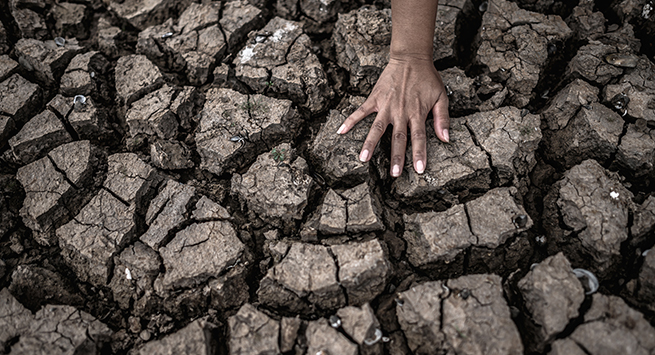
What are the Impacts of Climate Change on Türkiye?
The impacts of climate change on Türkiye are increasing day by day due to meeting of energy and shelter needs and unplanned use of natural resources. The increase in the area of destroyed forest land for establishment of new settlement areas and in the number of industrial areas escalate the greenhouse gas emissions.
According to the 2017 data of TUIK (Turkish Statistical Institute), the greenhouse gas emissions in Türkiye has been realized as 526.3 million tons. Considering the greenhouse gas emissions since 1990, a continuous upward trend can be seen. While the greenhouse gas emission per capita had been calculated as 4 tons/person in 1990, this rate has reached to 6.6 tons/person as of 2017. It can be stated that the amount of greenhouse gases emitted in Türkiye in the last 18 years has increased by almost 65%.
According to the data published by Eurostat on European countries, the highest greenhouse gas emissions are made by Germany. Germany is followed by Türkiye, the United Kingdom, France and Italy with the highest emissions.
When the data published by the Directorate General of Meteorology on the temperatures experienced between 1970 and 2017 are examined, it can be said that an ever increasing trend is seen in the average temperature rise in Türkiye. It is observed that the average temperature in Türkiye has increased from 12.7 ºC to 14.0 ºC in a period of approximately 50 years.
What Can We Do to Prevent Global Climate Change?
Every individual has a responsibility in preventing global climate change. Simple lifestyle changes to be made can help to curb the global climate change. Simple steps that can be applied can be listed as follows:
- Aircraft use can be reduced.
- Renewable energy sources can be preferred instead of fossil fuels.
- Consumption of animal products such as meat, farm fish, milk, cheese and butter can be reduced.
- Consumption of locally produced foods can be increased.
- Domestic producers and unpackaged foods can be preferred.
- Energy savings can be made by applying insulation to the houses.
- Walking or cycling can be used for short distance transportation.
- Video conference meetings can be held instead of business trips.
- Hot water consumption can be reduced and energy savings can be made.
- As conscious consumers, companies using renewable energy sources can be preferred.
- Low energy consuming LED bulbs can be used instead of standard bulbs.
- Household solar energy systems can be used.
- Clothes can be dried by hanging them instead of using tumble dryers.
- Waste management can be done by adopting recycling and zero waste.
What are the Studies Conducted in the World on Climate Change?
Both locally and internationally, there exists many initiatives on climate change in the world. The studies conducted can succeed in preventing the climate change and, as a result, in preventing the global warming.
Presently, increasing of production to meet the energy demand is the preferred method. However, the method that will be beneficial in respect of an economic and ecological point of view can be the management of consumption. The fastest and least costly way to reduce carbon emissions may be the implementation of measures to ensure energy efficiency.
Changes in land use, particularly deforestation alone, account for 17% of greenhouse gas emissions. Stopping deforestation and increasing forest areas can have positive effects on climate change. States can also take some measures for climate change. We can list some of them as follows:
- International treaties, such as the Paris Climate Agreement, can be ratified and implemented.
- Support can be given to and investments can be made in renewable energy sources instead of fossil fuels.
- Tax laws can be created for carbon emissions.
- Housing and waste management projects can be implemented to protect the ecosystems.
In Conclusion
For the global climate change problem, which affects all the living creatures on earth, each one of us bears responsibility. Thanks to companies that produce with renewable energy sources such as Aydem Renewables, greenhouse gases, which are the main cause of climate change, can be reduced.
In line with the demands of conscious consumers, adoption of renewable resources by companies can be ensured. Adverse effects of global climate change that develop as the result of human activities can only be resolved by the conscious choices we shall make. Recycling, adopting a zero-waste lifestyle and using renewable energy sources can be considered as the most essential, most important elements of conscious consumption.
Resources:
https://www.dogrulukpayi.com/bulten/iklim-degisikligini-hissediyor-musunuz
https://mgm.gov.tr/iklim/iklim-degisikligi.aspx
https://www.amnesty.org.tr/icerik/iklim-degisikligi
https://www.wwf.org.tr/ne_yapiyoruz/iklim_degisikligi_ve_enerji/iklim_degisikligi/
https://tr.wikipedia.org/wiki/%C4%B0klim_de%C4%9Fi%C5%9Fikli%C4%9Fi
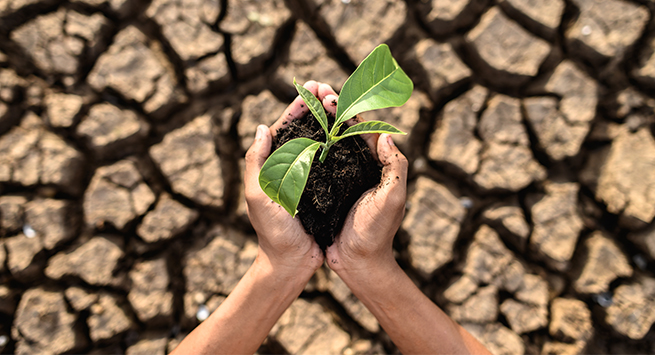
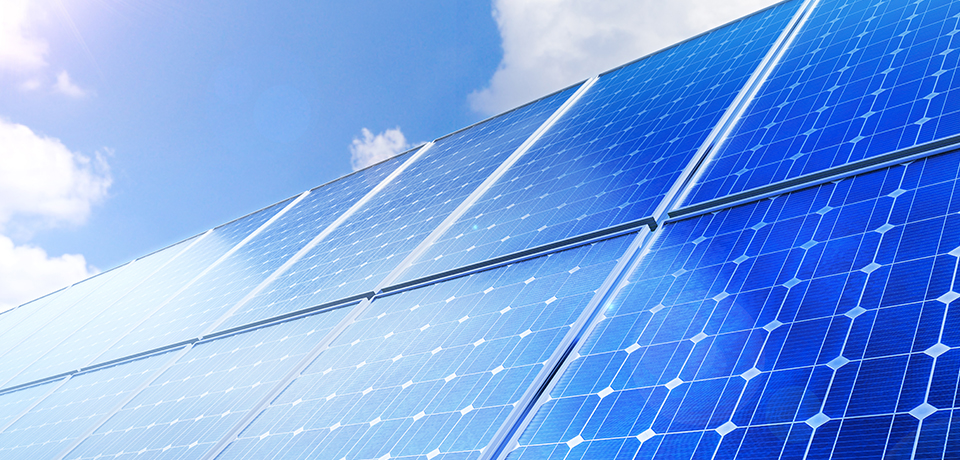 Insolation Time and Solar Energy Efficiency
Insolation Time and Solar Energy Efficiency 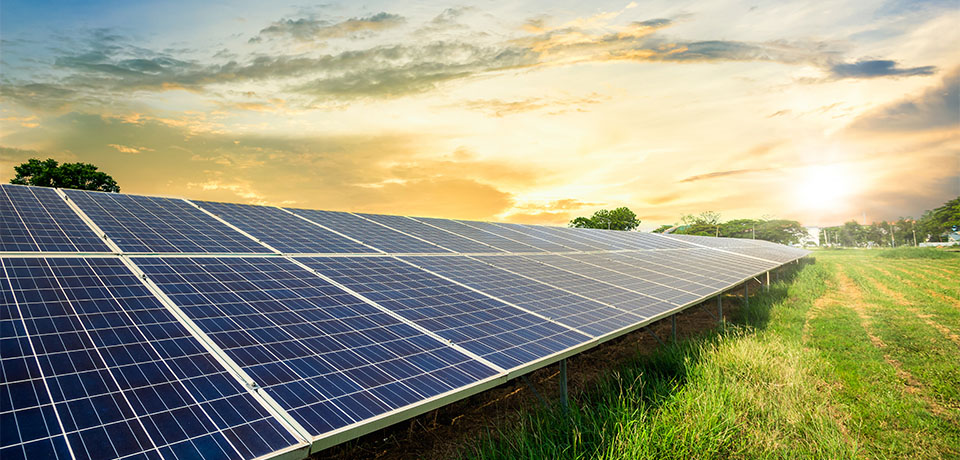 What is Solar Energy? How is Electricity Generated From Solar Energy?
What is Solar Energy? How is Electricity Generated From Solar Energy?  Renewable Energy Sources - Advantages of Renewable Energy Generation and Use
Renewable Energy Sources - Advantages of Renewable Energy Generation and Use 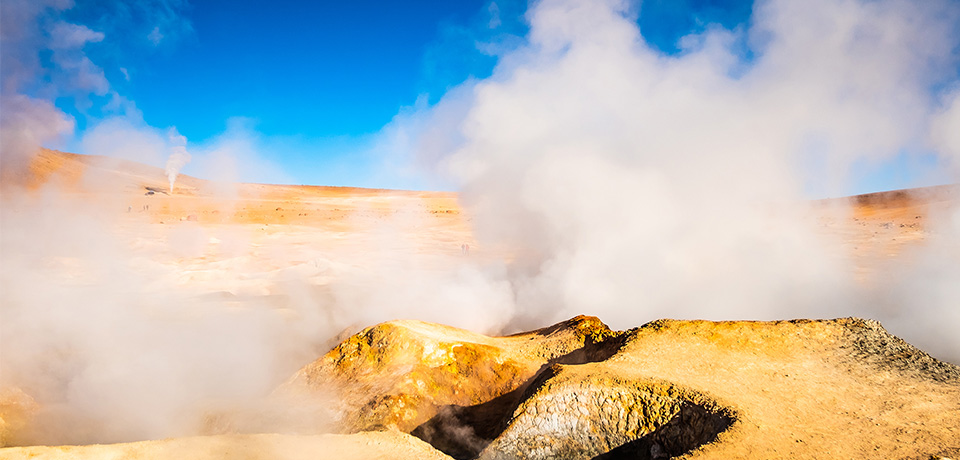 Geothermal Energy Potential of Turkey and its Sustainability
Geothermal Energy Potential of Turkey and its Sustainability